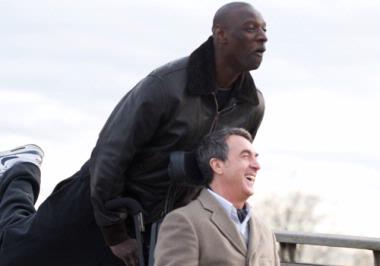As a child of the ’80s, I am intimately familiar with the mix tape. For those readers who have grown up without cassettes, the idea is similar to a CD mix, or a flash drive filled with your favorite mp3s, or whatever it is you youngsters are using to share songs these days. Boil them down and they’re all the same: you take the songs you like, record copies of them, and then share those copies with friends that (be honest) you want to impress.
When I began making them, it was an arduous process, if one well loved; it was like fashioning a self portrait out of puzzle pieces. Getting everything to fit correctly wasn’t always easy, especially if you were bold or foolish enough to try recording songs directly off the radio. (They were always ruined at the last moment by a used car ad fading in before the song was over. Don’t try it at home.) That all changed with the advent of the Internet, of course, which quickly made even the idea of physical media seem somehow quaint.
A fan of early jazz, I had been trading recordings—mailing CDs, mostly—with overseas collectors for some time before Napster and its followers changed the game. And while the immediate availability of so many heretofore out-of-print rarities definitely removed some of the thrill of the chase, the music was also its own reward. But just as it changed the collector’s game, it also struck fear into the giants of traditional distribution. If a writer in Western Mass. can swap recordings of old nightclub jams with a doctor in France, why couldn’t someone else do it with a Top 40 hit? It was a threat too big to ignore, and the telecom industry was desperate to keep it in check.
Barbershop Punk, screening Friday at 7 p.m. at Easthampton theater Popcorn Noir, tells the story of Robb Topolski, an Intel engineer and barbershop harmony buff who ran afoul of the draconian measures telecommunication giants took to thwart file-sharing.
It’s a remarkable David vs. Goliath story. Topolski, out sick from his gig as an engineer at Intel, decided to pass the time by trying out the then-new file sharing service Gnutella—he wanted to find some new barbershop tunes, and to offer up his own public domain library to the rest of the Internet. Tired and woozy, he set up the program so that other users could browse the music folders on his computer. Then something remarkable happened. Nobody did.
The reason, it turned out, had nothing to do with Topolski’s rather esoteric musical tastes. Instead, it was Comcast, the company he paid for Internet access, that was blocking his signal—a fact the engineer verified by running his own software analyses. Not long after he went public with his findings on a Web forum popular with broadband geeks, the Associated Press got in touch. Comcast was in trouble.
The end result is still an open question, but cases like Topolski’s helped spark public debate about Net Neutrality—the idea that Internet providers should not be able to dictate what we can and cannot do online. It’s a fight that rages on today, and could have a serious effect on the world of tomorrow.
Also this week: The French comedy with the oddly translated title—The Intouchables—comes to Amherst, telling a based-in-fact story about a remarkable friendship between a paralyzed millionaire and his ex-con caretaker. François Cluzet and Omar Sy co-star as Philippe and Driss, the seemingly mismatched pair who slowly warm to life as, side by side, they discover they may have more in common than they suspected. The story walks a fine line between warm-hearted and cliched (or, more dangerously, caricatured) but in the end it means so well that it’s hard not to give in to its simple pleasures.?
Jack Brown can be reached at cinemadope@gmail.com.



